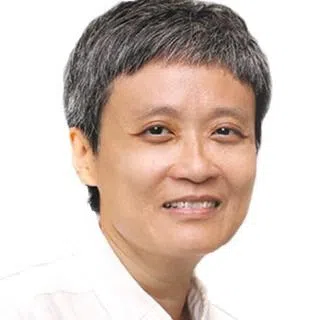[Big read] Building trust is key: How a Singaporean doctor is changing Tsinghua University
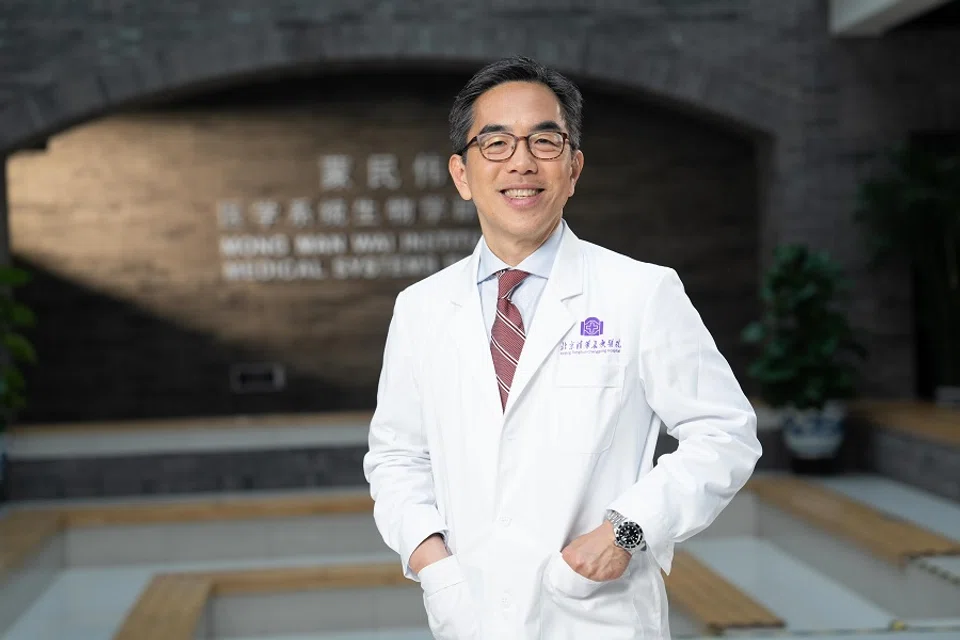
Change and reform is never easy, more so when efforts are made by a foreigner. But that is exactly what Singaporean doctor Wong Tien Yin is doing in the medicine faculty at Tsinghua University in Beijing. He speaks to Lianhe Zaobao correspondent Sim Tze Wei about his work, building trust, the “Chinese” way of doing things, and how Singaporean youths are too “comfortable”.
(All photos provided by interviewee.)
The Singapore healthcare system is structure-centred, focusing on institutional frameworks, whereas China’s is leader-centred, requiring trust-building before structural reorganisation can occur in Chinese educational institutions. Chinese youths remain motivated in adversity while Singaporean youths lead too comfortable lives, which may not be a good thing.
In an interview with Lianhe Zaobao in early December, 56-year-old Wong Tien Yin, vice provost of Tsinghua University and head of Tsinghua Medicine, gave his observations and experiences after nearly three years of working in China.
Reorganising for research impact
Wong is a Singaporean ophthalmologist and clinician scientist, who knows both clinical and research settings. In 2021, he was shortlisted during Tsinghua’s recruitment drive for international talent, and accepted the invitation to join the university in November that year. In early 2022, during the pandemic, he quarantined in Shanghai before moving to Beijing to head Tsinghua’s medical school.
Tsinghua Medicine will focus on cultivating clinician scientists. With training in research, doctors can better find clinical applications for basic research findings...
Fast forward three years, and Wong has boldly implemented a structural reorganisation of Tsinghua Medicine, and risen to become its dean. He shared that the aim of the more international and modern new structure is to allow the five affiliated schools and four affiliated hospitals to work more closely with each other, facilitating the integration of medical research and clinical practice to establish a modern academic healthcare system.
Wong said under its new organisational structure, Tsinghua Medicine will focus on cultivating clinician scientists. With training in research, doctors can better find clinical applications for basic research findings; the Chinese healthcare system needs such talents who are able to carry out scientific research and resolve complex clinical situations.
As the head of Tsinghua Medicine, Wong is responsible for coordinating the integrated operation of its affiliated schools and hospitals. At present, its five affiliated schools are the School of Basic Medical Sciences, School of Clinical Medicine (Beijing Tsinghua Changgung Hospital), School of Pharmaceutical Sciences, School of Biomedical Engineering, and the School of Healthcare Management. On 15 November, an inauguration ceremony was held following the reorganisation of Tsinghua Medicine.
An English-speaking Singaporean in China
Unlike other Singaporean business owners or senior executives seeking their fortunes in China, Wong is in a unique position, being a foreigner within the Chinese system.
Being in the system, he gets to see firsthand the full picture of how it works, which outsiders are not privy to; as a foreigner, he is able to objectively share his views on the problems with the healthcare system during small group meetings or discussions.
While we were filming his interview on campus, Wong told me that one of his value propositions as a foreigner within the system is to “provide his independent, objective assessment without bias, and without being offensive”.
...it was not always smooth sailing and things did not always go his way.
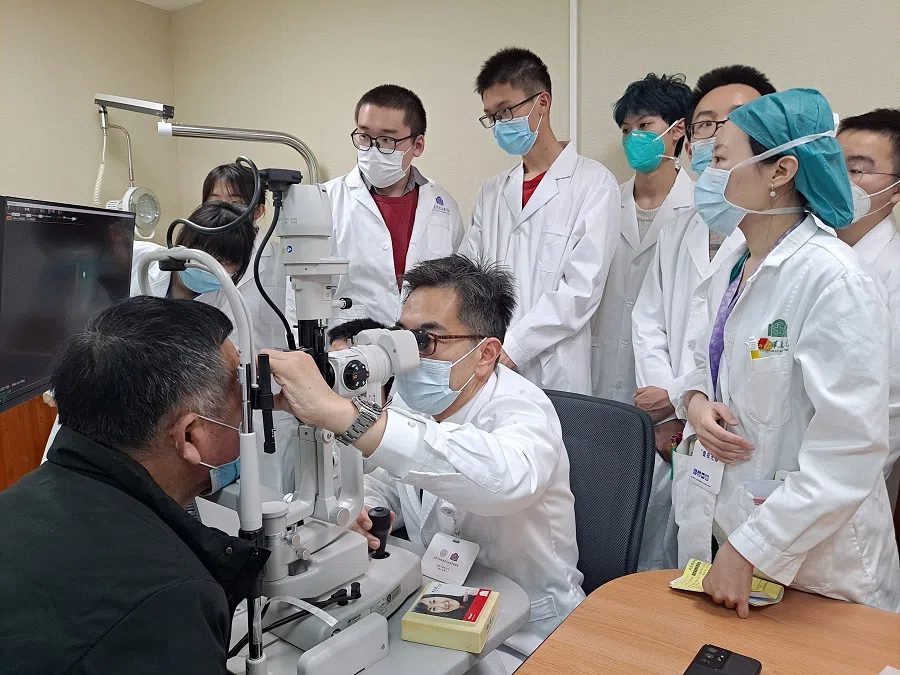
Wong’s work schedule is packed. Other than driving the structural revamp of Tsinghua Medicine, he lectures, does his rounds at the affiliated hospitals regularly, and carries out research. Even on weekends, he may not get to rest.
On the day of our interview, we had to change the location from the hospital to the campus an hour before our meeting time, as Wong had to attend an online meeting after our session. Once he arrived and clipped the microphone on, he signalled to me that he was ready to start at any time.
The English-educated Wong grew up speaking English at home. His assistant at the university told me that he still communicates primarily in English. Nonetheless, he was happy to use Mandarin during our interview. After his nearly three-year immersion in the Chinese system, Wong can now converse fluently in Mandarin.
A deep dive into Chinese society and system
This President’s Scholar is quick on his feet, mentally and physically. As he nimbly navigated the stairs, one would not guess that he recently had a knee operation; he also had ideas where to film in the university. But when it came to Tsinghua Medicine’s structural overhaul, he shared that it was not always smooth sailing and things did not always go his way.
Looking back at his work in the last three years, Wong pointed out that gaining the trust of his colleagues and superiors was crucial to his organisational revamp of Tsinghua Medicine. “Trust is not gained so quickly, in fact, it is a process and not an easy thing to achieve. I have been slowly working on it over the past three years.”
Wong told me that the academic staff are often the ones who are especially uncomfortable about the reorganisation because they have been working independently in their respective teaching roles for a long time.
As the team he leads is small, Wong has personally communicated with school leaders, professors, and students over the past three years, to get them to see that the reorganisation is not for his gain, but for Tsinghua, the Chinese people, and society. He emphasised the need to use soft influence instead of authority to make people accept the structural revamp. “Communication is key,” he emphasised. “It’s about influence and persuasion, not simply wielding authority. You need to motivate.”
...he engaged in clinical practice, conducted research, taught at the university, and even became a patient after he fell and needed knee surgery.
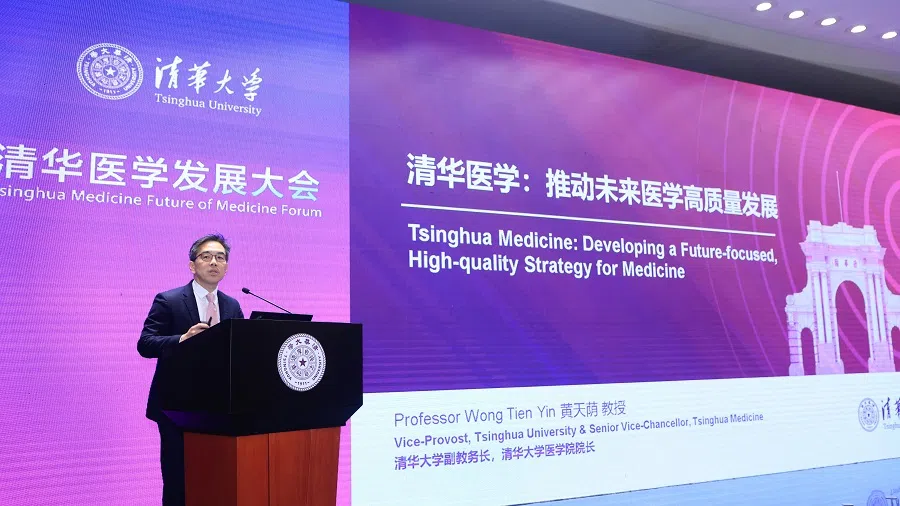
Wong’s father is the late Professor John C H Wong, a former director of the National University of Singapore (NUS) East Asia Institute and scholar of China’s economic development, while his mother is Dr Aline Wong nee Kan Lai Chung, a former senior minister of state for education and health.
Wong admitted that before coming to China, he did not understand its healthcare system much less the problems he would be handling at Tsinghua. The first mission he set himself was to dive in deep to understand the situation. So, he engaged in clinical practice, conducted research, taught at the university, and even became a patient after he fell and needed knee surgery. These four roles gave him a comprehensive view of the strengths and weaknesses of the Chinese healthcare system.
Healthcare lags in China
Wong feels that on the whole, even though Chinese society and the country’s economy have developed tremendously in the last three to four decades, its healthcare system has not caught up to where China is socio-economically.
To him, there are five major challenges for the Chinese healthcare system, with the most pressing being the country’s ageing population. He explained that many elderly patients want to maintain a high quality of life, and the healthcare system has to move away from managing emergencies towards chronic disease management, while hospitals have to move away from the three-tier hospital grading system to being centred on personal health, preventive medicine, community hospitals, and general practitioners.
Second, the unequal allocation of healthcare resources between urban and rural areas means that healthcare resources in large Chinese cities are under tremendous pressure to satisfy the needs of local patients and those referred in from second or third-tier cities.
Third, rising costs means that even though healthcare spending is already at 7% of China’s GDP, it is still inadequate.
Fourth, a shortage of healthcare personnel.
Fifth, more can be done to translate research findings from university laboratories into clinical research.
Having been operated on in China, Wong can feel that China’s healthcare system is still not mature when it comes to post-surgery care, physiotherapy, and general practice.
He noted that China’s huge population means that its doctors perform numerous surgeries, so Chinese doctors have world-leading skills, especially in surgery. However, China does not really value general practitioners, and family doctors do not have enough recognition. For instance, half of the doctors in Singapore are family physicians, but in China, the proportion is very small.
“I intend to use the reorganisation of Tsinghua Medicine as a pilot. If the model solves problems, other universities or healthcare systems can use it to gradually change their culture.” — Wong Tien Yin, vice provost of Tsinghua University and head of Tsinghua Medicine
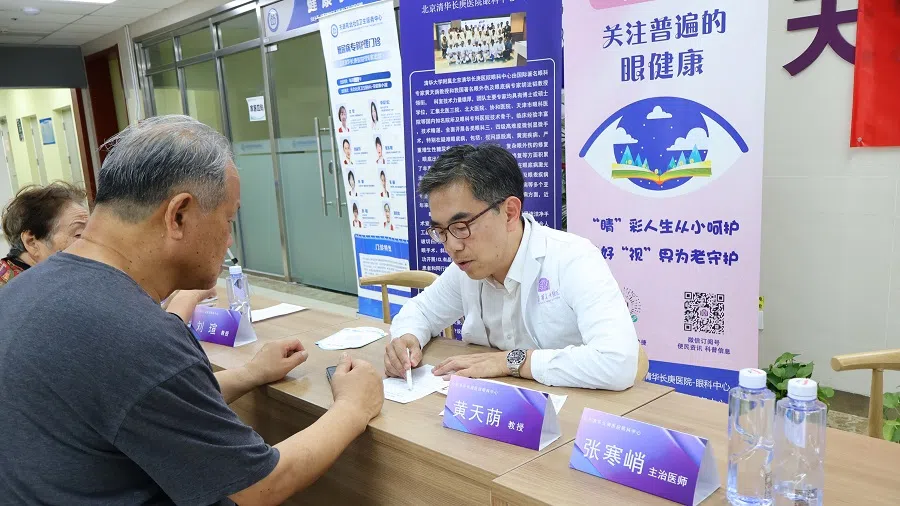
After identifying the problem, Wong started to actively push for reform, starting with the structure of Tsinghua Medicine.
He stated that reforming China’s healthcare system requires more than one person, and he hopes the Tsinghua Medicine structural revamp will act as a pilot project, similar to the Suzhou Industrial Park model, which has been replicated across China.
Wong said, “China is a huge country that is very difficult to manage, very different from Singapore. Singapore’s population is only five million so it is relatively easy to implement a government policy, but Beijing’s population is four to five times more, so how are things pushed through? Pilot projects are part of China’s system. One example is the SIP. I intend to use the reorganisation of Tsinghua Medicine as a pilot. If the model solves problems, other universities or healthcare systems can use it to gradually change their culture.”
Change of leader might mean change of system
I asked Wong about the Singaporean traits he initially brought to his post, and the Chinese characteristics he hopes to bring home when he steps down.
First, he pointed out the differences between both countries: while China is leader-centred, Singapore is structure-centred.
Wong observed that in China, decisions are often made based on the leader’s vision. Once a leader sets a development path, hospitals or schools follow it. However, this means that when leadership changes, the goals of these institutions can quickly shift to align with new directives.
Wong feels that the key to Singapore’s success is that its operating system is structure-centred rather than leader-centred. As long as the vision is correct and there is consensus, there will not be a case of “new leader, new system”.
Wong hopes to replicate Singapore’s mature healthcare structure in China. During his time at Duke-NUS Medical School, he was its vice dean of academic and clinical development, so it is perhaps unsurprising that the structural reform he is driving at Tsinghua Medicine bears some resemblance to Duke-NUS in its focus on cultivating clinician scientists to better translate fundamental research findings into clinical applications.
...the advantage of the Chinese model is its fast implementation. Once a policy direction is set, the entire team gets moving. “It is faster, and sometimes the work begins even before all the resources are in place.” — Wong
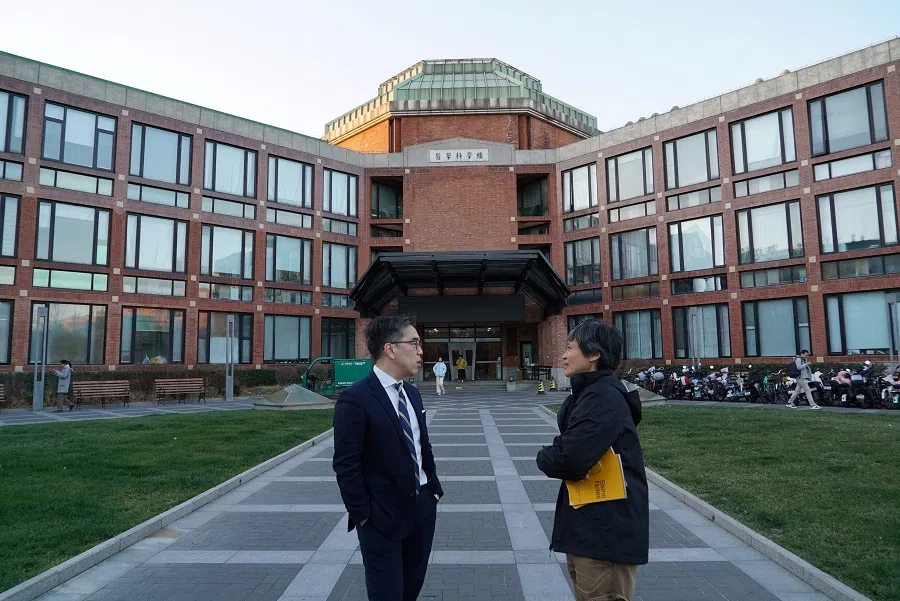
Wong also pointed out that the advantage of the Chinese model is its fast implementation. Once a policy direction is set, the entire team gets moving. “It is faster, and sometimes the work begins even before all the resources are in place.” This is why China has made big, rapid strides over the past 30 years.
He said in comparison, Singapore tends to address every small issue and gather all necessary resources before launching a project.
Wong emphasised that while the two different approaches result in different rates of progress, there is no right or wrong.
Establishing an AI hospital
Wong’s is a family of doctors. His wife is a family physician in Singapore, and she currently shuttles between Singapore and China. Their elder son is a doctor in Singapore, while their younger son is studying medicine in the UK.
As for when he intends to return to Singapore, Wong did not give a clear answer, but said that as a Singaporean he will come home. “It is just a matter of time”. During our filming on campus and subsequently, on WeChat, Wong shared with me that he hopes to firm up the structural reform of Tsinghua Medicine and the integration of its affiliated schools and hospitals. “When the platform is mature and stable, I will make plans to head home.”
Restructuring Tsinghua Medicine is not an easy mission. When the topic shifted to the development of AI hospitals, Wong became more animated, and one could see that this is something he is passionate about.
He is optimistic that Tsinghua could establish China’s first AI hospital because China has a strong digital culture, government policies support AI development, and Tsinghua University excels in science and engineering.
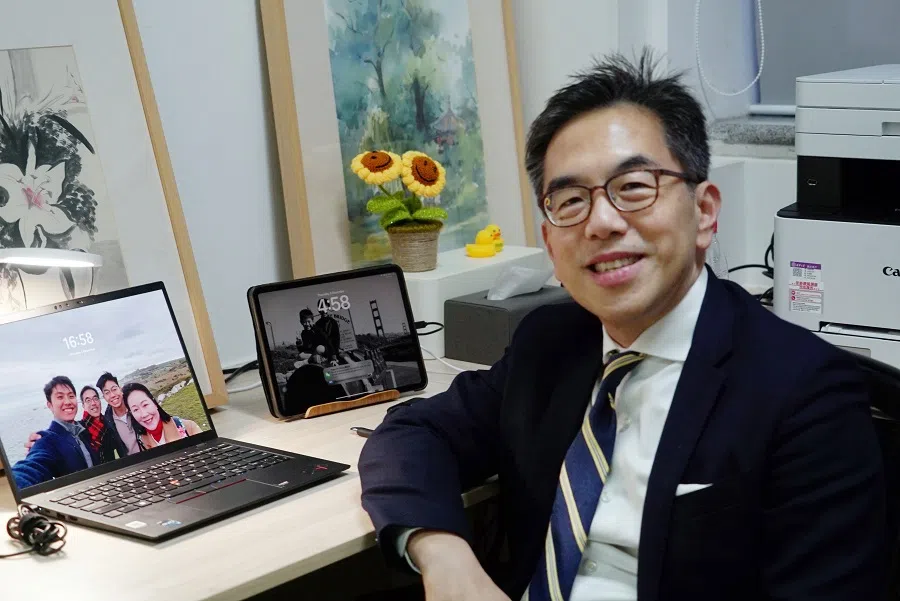
Wong is currently actively promoting the establishment of an AI hospital at the new Tsinghua Medicine campus. He is optimistic that Tsinghua could establish China’s first AI hospital because China has a strong digital culture, government policies support AI development, and Tsinghua University excels in science and engineering.
He explained that when a hospital already has a mature structure, it becomes more difficult to introduce AI, and Tsinghua Medicine’s new platform increases the chances of success. “Starting from scratch gives us the opportunity. We aim to create an AI-centric model, with doctors and medical staff acting as assistants, where AI works closely with doctors.”
He said that AI hospitals could address many issues, including improving efficiency, reducing costs, and enabling a small number of doctors to serve a large number of patients. Additionally, it could improve the conditions for medical care, allowing patients to receive remote consultations even if they cannot make an in-person appointment.
Singaporean youths are ‘too comfortable’
Another characteristic of the revamped Tsinghua Medicine is its priority in cultivating talent with international perspectives. Wong said that his organisation is actively collaborating with top foreign universities to facilitate student exchanges between two and four years.
This year, some 30 or 40 Tsinghua students went on exchange to universities overseas, including NUS, while 50 NUS students came to Tsinghua. Wong is glad for the opportunity to connect students from both countries and he hopes they can go on to build lasting friendships.
Wong also encourages Singaporeans, especially young Chinese Singaporeans, to visit China more often. He said that even though Chinese Singaporeans may resemble the Chinese in appearance, the cultures of both countries are very different. A Singaporean in China will quickly notice that “we are not quite the same as the Chinese”.
His personal experience is that Chinese Singaporeans do not have a good understanding of China’s history and culture and “this inadequacy makes it very difficult to get things done”. For example, it is easier to build trust in Singapore, so the three-step process of “writing a proposal, sign, and done” is the norm, but building trust takes time in China. At the same time, one needs to ensure that risk controls are in place for the project in order for it to succeed.
“Singaporean youths are too comfortable and this is not good for Singapore. They have to understand that not the entire world is as comfortable as Singapore and they should not take it for granted that the world is like this.” — Wong
Comparing Singaporean and Chinese youths, Wong feels that even though the Chinese economy faces headwinds and conditions in its macroenvironment have deteriorated, Chinese youths are still motivated to work hard to improve their lives. On the other hand, Singaporean youths are too comfortable, want for nothing in a wealthy country, and have not faced hardship.
“Singaporean youths are too comfortable and this is not good for Singapore. They have to understand that not the entire world is as comfortable as Singapore and they should not take it for granted that the world is like this.”
Chinese doctors earn less than tutors
Wong shared that one major challenge in the Chinese healthcare system is that doctors, particularly junior ones, are often regarded as service personnel rather than professionals. This perception, combined with their lower pay compared to tutors, contributes to a manpower shortage in the healthcare sector.
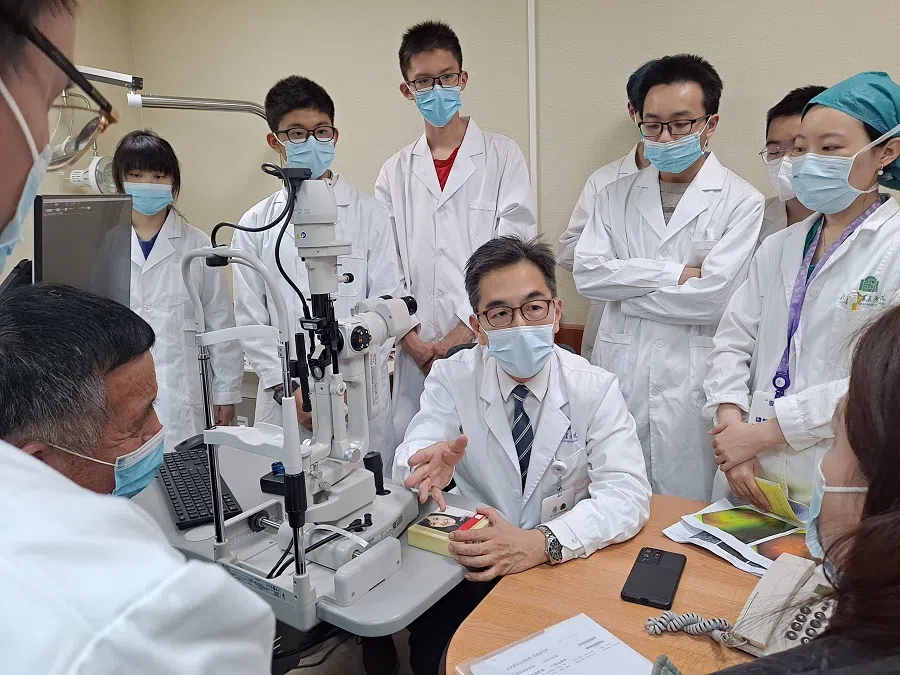
For a long time, the Chinese healthcare sector has been plagued by the problem of doctors making extra income from red packets from patients and kickbacks from representatives of medical companies. In the second half of 2023, the Chinese authorities went all out to target corruption in the healthcare industry, and many hospital directors, party secretaries, and officials of local healthcare systems were removed.
In reply to my question on the above problem with the Chinese healthcare system, Wong noted the earliest impression in China of doctors was as “barefoot doctors” (赤脚医生), who were seen as social workers in rural areas. While Chinese society has undergone tremendous changes following the country’s reform and opening-up, doctors are still not seen as esteemed professionals, so outstanding students may not choose to study medicine. “Unlike in other countries, many Chinese parents do not encourage their children to study medicine.”
Mindset change needed for wages to rise
Wong feels that to change the status quo, the mindset that junior doctors are service personnel has to change. Otherwise, it would be hard to raise wages to attract and retain talent. Using tutors as an example, Wong noted that their hourly earnings exceed those of junior doctors, so who would encourage their children to become doctors?
“In Beijing, a tutor can earn 700-800 RMB (US$96-US$110) an hour from teaching English, whereas a doctor can only make 30-50 RMB per initial visit. If the doctor sees four to five patients in an hour, that would come up to 200-300 RMB. How can doctors make a good living, right?”
To Wong, the mismatch between the long, tough effort and time spent on studying medicine and how doctors are treated has led to malpractices in the sector. He added that the scarcity of private hospitals in China means fewer employment options for its doctors, so many students do not go on to become doctors after medical school.
“In Singapore, 95-98% of medical school students become doctors but over here, 30-40% join other sectors instead. You can join pharmaceuticals or even start your own businesses, right? It is actually not easy for medical students to stay in the healthcare system.”
Wong said this is why the School of Healthcare Management was set up as part of Tsinghua Medicine’s reorganisation. Wong hopes that it can be the portal to introduce modern policies that can help elevate the professional status and healthcare standards of Chinese doctors.
This article was first published in Lianhe Zaobao as “清华大学副教务长黄天荫 体制内的外国人 慢慢改革清华医学”.
